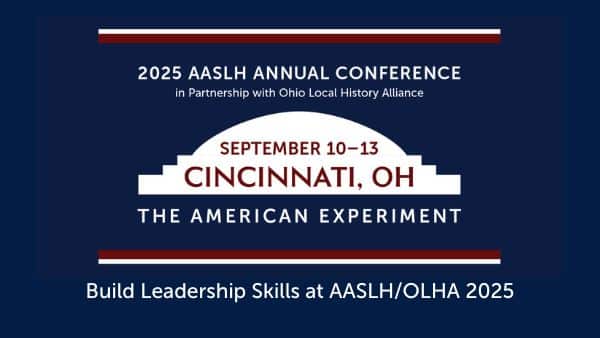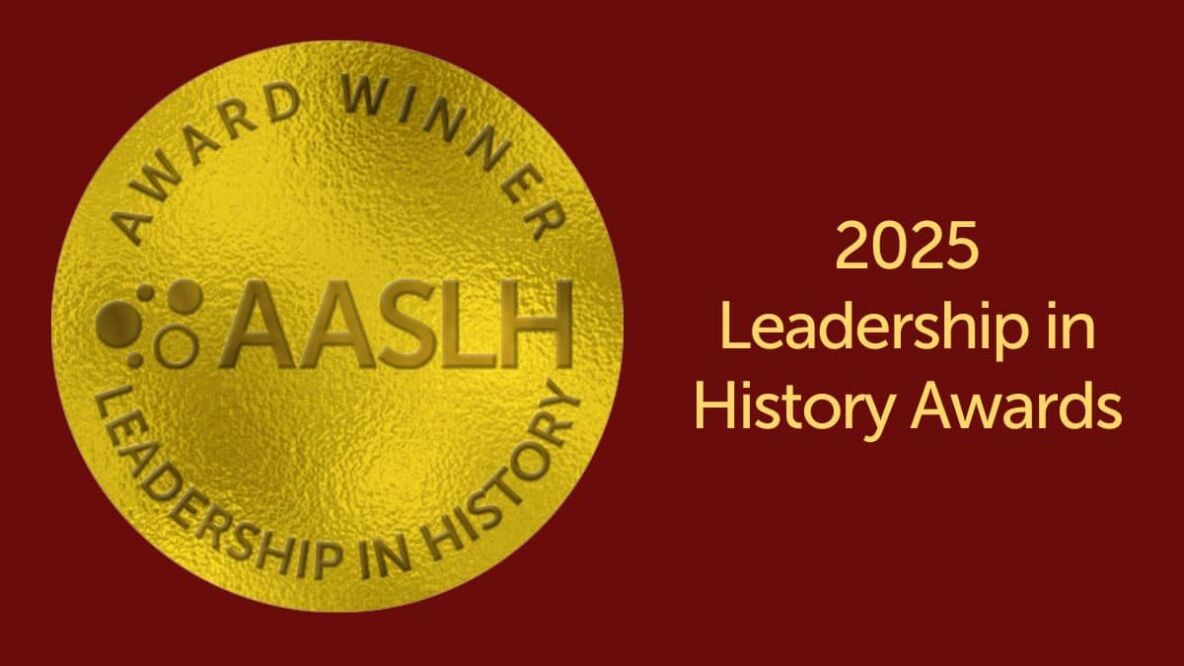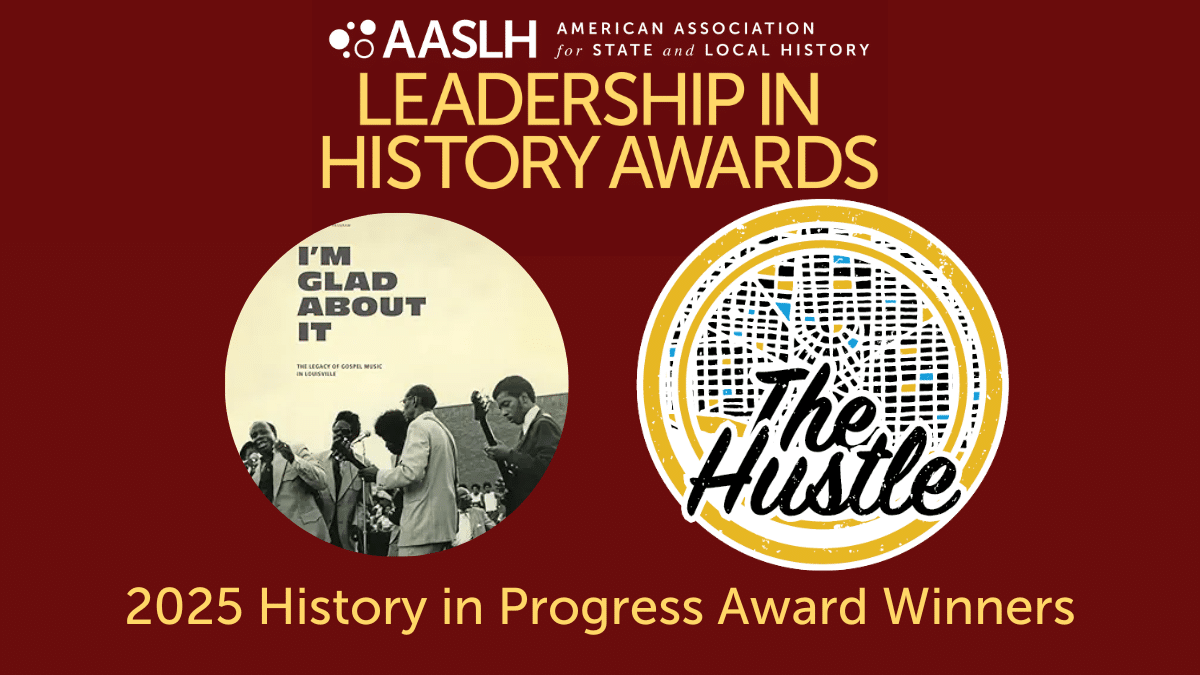By Sam Dinnie, 2022 AASLH Summer Intern
In a moment rife with rapid changes to our social and political landscape, history organizations are constantly adapting to meet the needs of their communities. At the same time, they’re also working to stay up to date on scholarship and fieldwide trends, engage in conversation with the public and fellow history practitioners, continue the ongoing process of making institutions more equitable, and fulfill the responsibilities that come with being stewards of history and memory and cornerstones of the community. Finding the time and resources to carry out these important facets of public history work and the learning (and unlearning) that comes with the process can be difficult in a field overburdened with issues of staffing, funding, retention, and compensation.
As the Research and Resources intern this summer, I am putting together kits using both AASLH’s extensive trove of resources and resources from outside organizations on pertinent topics in the field to better inform and further the work of public historians in an easily accessible and readily available format. I hope these resource kits contribute to moving the field in a more diverse, inclusive, accessible, and equitable direction by providing public historians in all stages of their career the tools they need to enact change.
Each resource kit addresses a specific topic and has a plethora of resources from AASLH and other organizations and museums to supplement AASLH’s content. Included in the kits are AASLH resources like 2020 and 2021 conference sessions, webinars, History News articles, Technical Leaflets, and book recommendations. Select AASLH Leadership in History Award winners from 2016-2022 are also highlighted to show models of these kit topics in practice and how the strategies these resources offer can be applied. Resources from outside AASLH, which range from readings to exhibitions, also demonstrate how kit topics can be implemented in public history institutions. An annotated bibliography is also part of each kit, thoroughly and succinctly describing the contents of each resource, to help those consulting the kits to easily determine which resources are most useful to their work.
The first resource kit that will be available in the AASLH Resource Center is the Civic Education and Engagement kit. It contains AASLH conference sessions from the 2021 and 2020 conferences, History News articles, a Technical Leaflet, books and guides, award winners, and a blog post about civics and the 250th anniversary of 1776. A few outside history and civics organizations and books are also featured. I chose this as a kit topic because civics has been brought to the forefront of planning conversations for the 250th, which presents an unequaled opportunity for renewing civic education and reviving civic dialogue by interrogating the history and legacy of the United States’ founding. The aim of this kit is to inform current public history practices, planning for the Semiquincentennial, and beyond. Resources in the kit address issues such as the role history plays in reinforcing civic education and how public history institutions can support educators and a public eager to learn and engage with democracy as informed citizens.
Four more resource kits on pressing public history issues follow the same format. The topics of the remaining kits are LGBTQ+ inclusive interpretation, understanding public memory, decolonization and the road to Indigenization, and interpreting African American history and culture. I chose each of these topics based on ongoing conversations happening within the field, the resources AASLH has available, my experience in museums, what the public is looking for from history organizations based on current events, and Diversity, Equity, Inclusion, and Access (DEIA) initiatives. I hope these kits help public historians work towards being the change they wish to see in the field.




